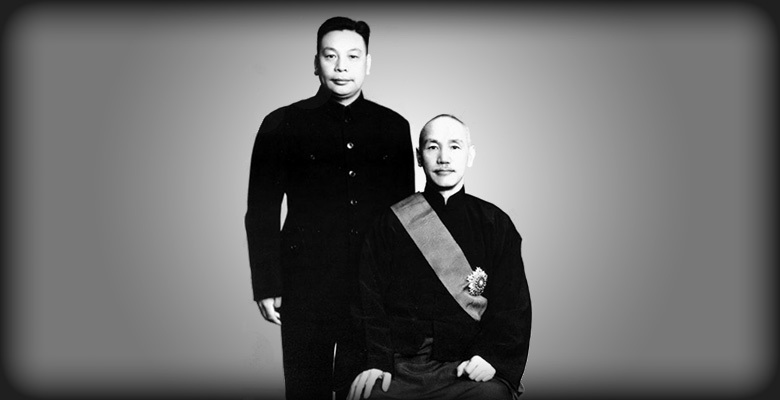
Power corrupts, they say. But it also condenses, congeals around influential families who—whether by simple advantage of their privileged positions or by more nefarious means—perpetuate lineages of influence and wealth. They exist in many guises around the world, from family-run dictatorships to democratic clans with enormous clout. The names Kennedy, Gandhi, Bush, Trudeau, Bhutto, Kim, Duvalier, and Marcos have appeared more than once in the annals of their respective nations.
Taiwan is a country dominated by dynastic politics. To some extent it is to be expected, in a young democracy with an entrenched ruling party that pervades every level of government and civil service. But the extent of the family ties is surprising even given the rigged nature of the game. Take a look around the most influential men (and yes, they are nearly always men) in Taiwanese public life. The mayor of Taipei, a potential presidential candidate in 2016, is Hau Lung-pin. His father, Hau Pei-tsun, was Premier in the early nineties, and remains one of the hardest of the pro-China hardliners, even as he approaches a hundred years of age. The KMT nominee to replace Hau Junior as mayor is Sean Lien, another scion of political power. Lien Chan, Sean Lien’s father, was the dominant figure in the same party from 2000 to 2008, and remains a powerful force behind the scenes. The common factor with the younger Hau and Lien is their general lack of aptitude for common necessities of democratic politics. Hau Lung-pin is a wooden speaker, an incompetent administrator, and a man who, judging by his spell in office, lacked any good ideas to improve the richest metropolis on the island (and one that could do with some serious improvements).
From 1949 to 1987 the most powerful person in Taiwan was surnamed Chiang. The father, Chiang Kai-shek, still casts a long shadow over the country of today. The Generalissimo, once ruler of all China, cultivated an air of scholarly, austere uprightness during his island exile. That he was neither a scholar nor particularly austere is by the by, as the man’s primary legacy for Taiwan lies in the tangled and uncertain fate the island faces today. Decades of murder and repression in the White Terror can be laid at his feet, as can utter intransigence over the possibility of a graceful separation of Taiwan from China. His son, Chiang Ching-kuo, also perfected a public persona far removed from his private actions. Seen even today by some Taiwanese people as a kindly, grandfatherly figure, he was for many years head of the secret police under his father, and as such was responsible for many of the crimes of the age. He is credited by some with ending martial law and allowing the seeds of democracy to take root in his final years, though others maintain that his hand was forced by global and local events.
The current President, Ma Ying-jeou, also hails from a political family. His father, Ma Ho-ling, was not a front-line politician, but instead a party insider, working in various positions of influence throughout his career. It was his steering of the younger Ma—handsome, urbane, and with a clean image—that ushered him into the corridors of power and on the road to a political career of his own. In fact in front-line politics today it is difficult to think of a prominent KMT politician who does not come from a heritage of political involvement. Jason Hu, mayor of Taichung, is the son of a Nationalist army officer. Eric Chu, mayor of New Taipei, is from a Taoyuan political family. Perhaps only Wang Jin-pyng—a man with a humble, non-political background—stands out, and he is mistrusted and has been sidelined by the KMT leadership.
This all sounds pretty one-sided, given that all the dynasties mentioned above involve the Kuomintang, and in a sense that’s inevitable when you choose to focus on one aspect of Taiwanese politics. The DPP of course has other problems, particularly with the 1979 generation of activists and lawyers who have only recently lost their vice-like grip on the reins of the party. Former President Chen Shui-bian’s fall from grace was sudden and absolute, while his fellow 79ers Frank Hsieh, Annette Lu, and Su Tseng-chang have faded rather more slowly into the background. Tsai Ying-wen and William Lai, perhaps the two most prominent pan-green politicians of the new generation, do not owe their positions to either family ties or the forge-fires of the DPP’s revolutionary beginnings.
Ultimately, when the children of powerful people gain power themselves, you could argue that there is no better education for a would-be leader than learning at the feet of someone who has already achieved that aim. Others would point to the disappointing sons of prominent people and affirm that nepotism and privilege are bound to mean a lowering of standards, as there is no competition among the best and the brightest for those coveted positions. Judging by the evidence of Taiwan’s political progeny, a little more merit and a little less favouritism would be no bad thing.
